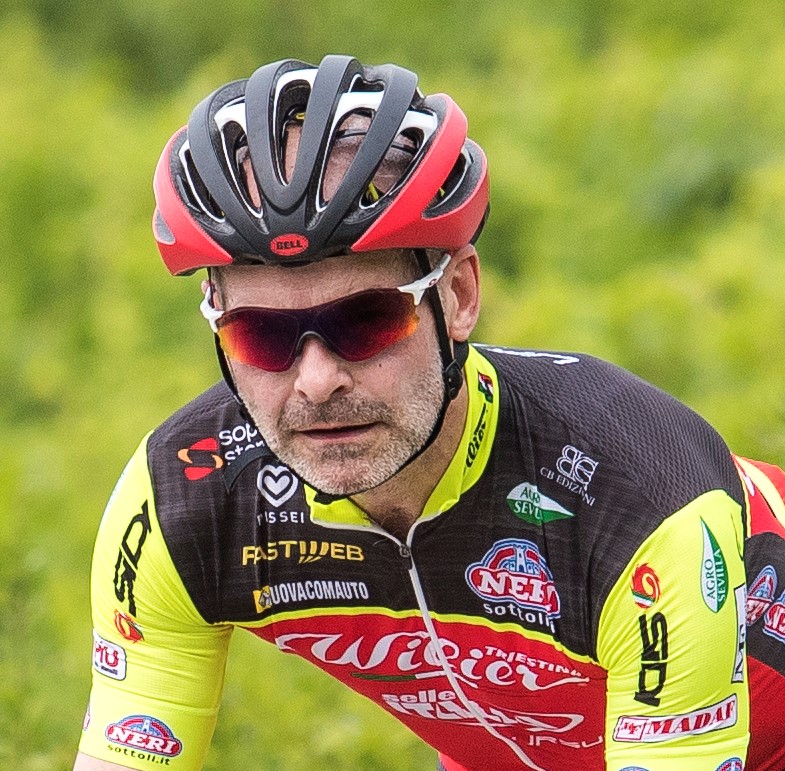British Cycling has announced how it expects its sanctioned cycling activities to restart in England. Although it says that plans are subject to change, it’s mapped out how and when it expects group riding, coaching and sportives to resume. It’s also working to firm up arrangements for Wales and Scotland.
If you’re just going for a non-organised ride on your own or with friends, the current guidance on exercise and social distancing in each UK nation (see below) will still apply.
British Cycling says that the key date is the week of 22 March, when it expects to have definitive guidance on grassroots sport from the government and Sport England. Currently, there remains uncertainty in a number of key areas including travel restrictions, indoor activity, spectating and facility use.
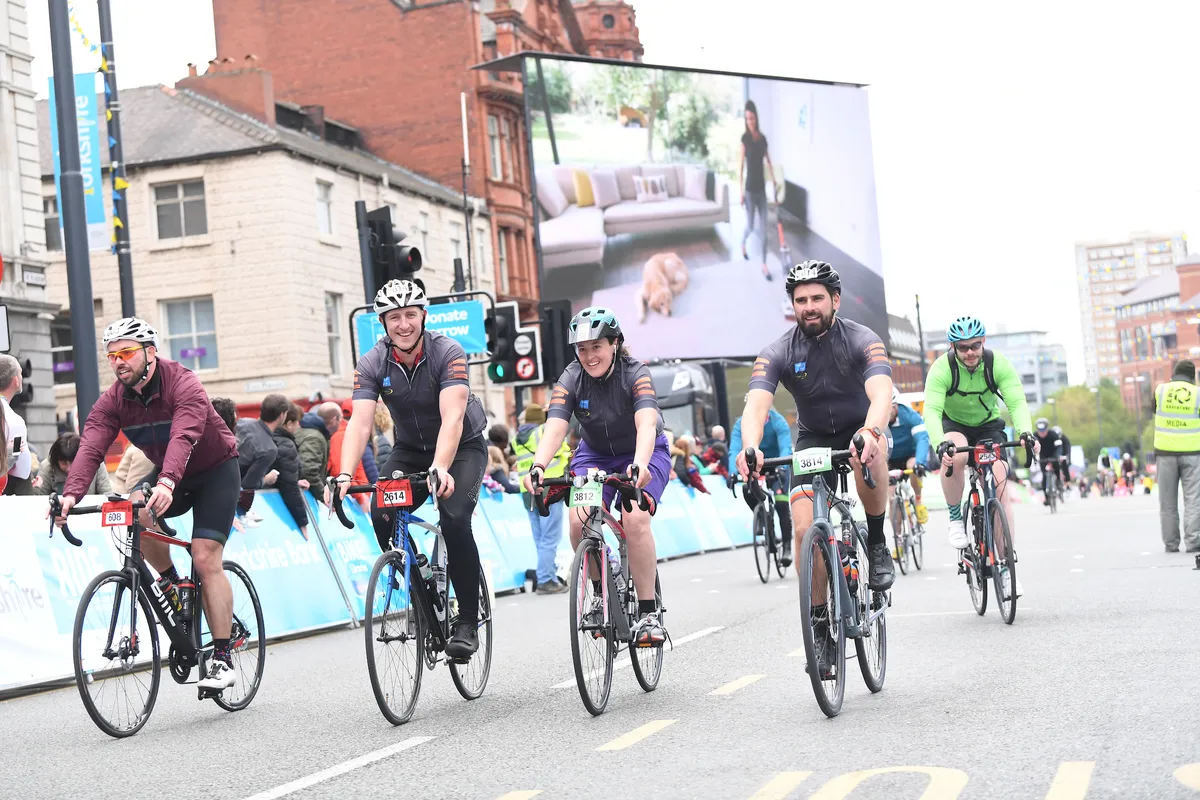
A statement from British Cycling’s cycling delivery director, Dani Every, said: “Like everybody in the cycling community, we are excited to get back to racing, riding with friends, coaching sessions and challenging ourselves.
“While we know that certain challenges remain, particularly in securing local permissions for road racing and Covid-secure uplift facilities in downhill mountain biking, we are working hard alongside our discipline commissions and other key stakeholder groups to find solutions."
Step one
With schools now back, cycling can form part of school sports provision. You can still cycle alone, with your household or with one other person for exercise.
Starting 29 March, British Cycling affiliated club rides in England can restart with up to 15 riders (in Scotland the date for this is 12 March), as can outdoor coach-led training. Indoor coaching and competitions can also restart for under-18s and disabled people.
Sportives and club and local/regional competitions can restart from this date too and, British Cycling says, will not be subject to the rule of six. But riders will need to stay over one metre apart and follow guidance on things such as hygiene and equipment sharing.
Step two
When further opening up will occur is still not fixed, but British Cycling says that the next stage will start on 12 April at the earliest.
In Step two, British Cycling says that it expects to sanction regional and some national competitions and challenge events like sportives. It expects to pilot road racing and downhill mountain biking events with uplifts. In this step it also expects to start delivering educational courses.
Step three
British Cycling has pencilled in Step three from 17 May at the earliest. At that point it expects to allow recreational group and club riding for groups of over 15 and open up indoor and outdoor coaching and competition.
Step four
Finally, with a provisional earliest date of 21 June, British Cycling expects all activities to resume, although some restrictions may still apply.
That timetable may mean that some events have to be cancelled or postponed, but British Cycling hopes to be able to permit a full calendar of events in the second half of the year, including the National Road Championships, although the planned June date may not be tenable.
As we've said above, these plans apply to England, and a different timetable may apply in Wales and Scotland.
But lockdown restrictions are still in place across the UK
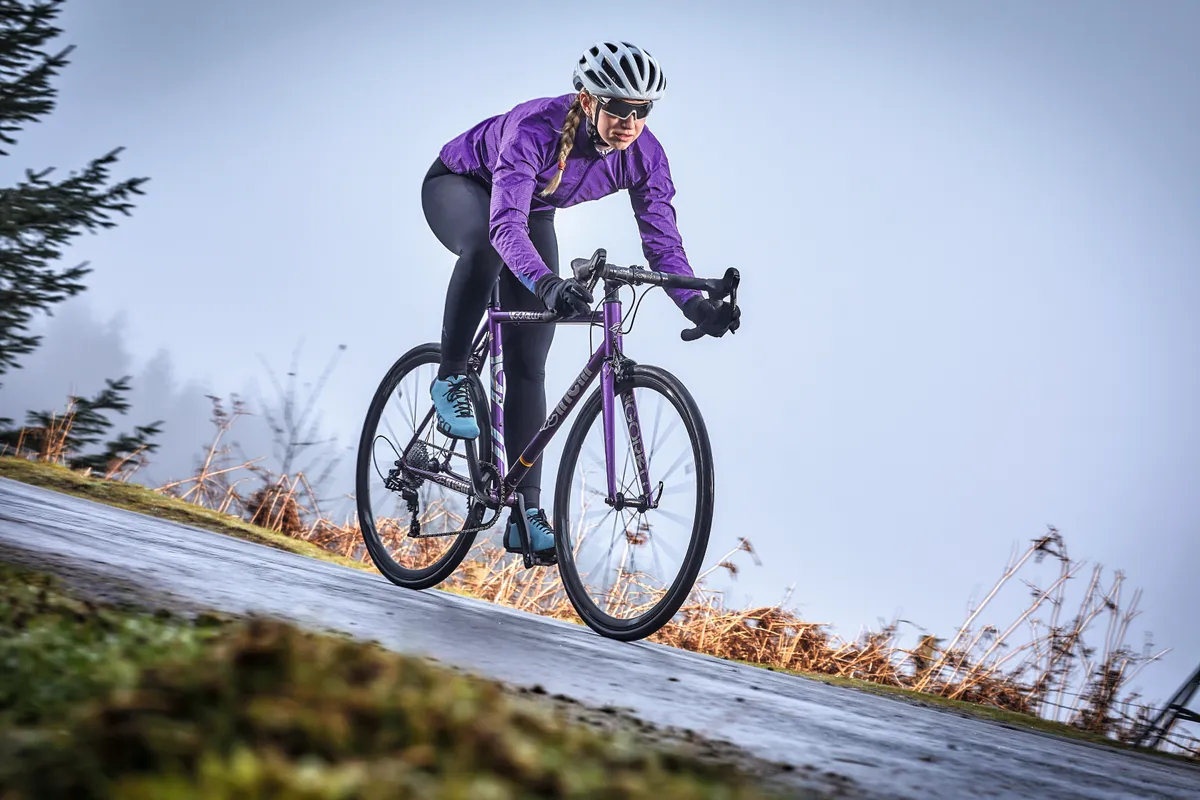
Be aware that the lockdowns that started at the end of last year are still in place in England, Scotland, Wales and Northern Ireland, despite the reduction in Covid-19 cases throughout the UK.
That means that the current rules on cycling and who you can meet still apply for now. They're different between jurisdictions, but all allow you to go out locally to take exercise, although the definition of “local” differs. You can also cycle to work if your job means that you can’t work from home.
The situation is still developing quickly, so be sure to check your local government’s official guidelines for the latest advice. We’ve got links to each government’s site here:
- Rules for exercising in England
- Rules for exercising in Wales
- Rules for exercising in Scotland
- Rules for exercising in Northern Ireland
What are the rules for exercising during the 2021 lockdowns?
The rules for what you can do, when, where and with whom differ slightly between England, Scotland, Wales and Northern Ireland. We’ve summarised the current rules across the UK below and highlighted any specific differences, but in general you should limit the number of people you interact with, keep exercise local and wash your hands regularly.
If you or someone you are in contact with has symptoms, you should stay at home and self-isolate.
If you break the rules, the police can fine you. Fines start from £200, but can rise to as much as £10,000 for severe breaches or repeat offences.
Can I ride with others?
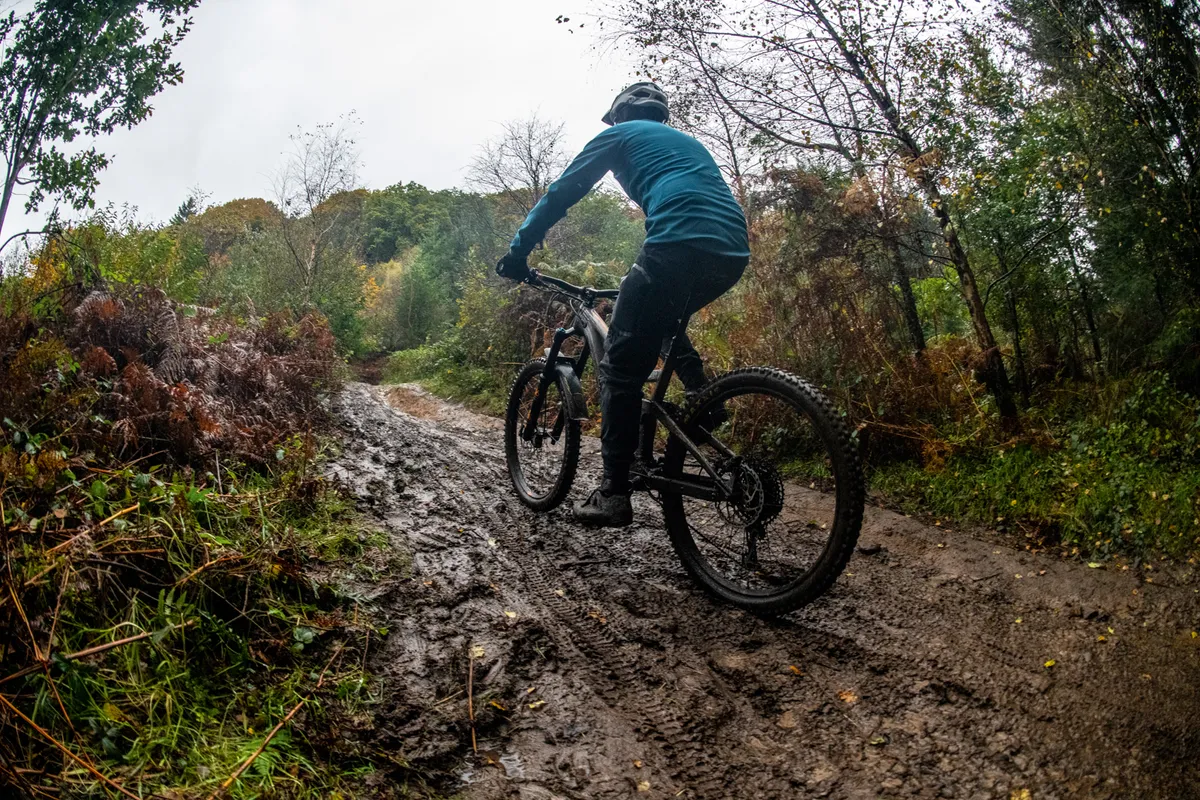
The lockdown is designed to limit opportunities for coronavirus to spread, so you should look to limit your social interactions, ideally riding alone
If you do decide to ride with another cyclist, they can be a member of your household. In England one person can also ride with one other buddy from outside their household or “support bubble”.
There’s also a stipulation in the regulations for England that you should stay at least two metres away from anyone outside your household when you exercise. So drafting might be an issue and you’re not likely to be very popular if you ride abreast on a road two metres apart. You can get to within one-metre of them if you wear a face mask, though.
In Wales, you can now meet people outside your family or support bubble from one other household, provided the total number isn't more than four and you maintain social distancing. And you must start and end from home or the home of your support bubble.
In Scotland, the regulations state that you can cycle with one other person for exercise, although from 12 March up to 15 people can meet for organised outdoor group exercise. You must start and finish no more than five miles from your local authority area's boundary.
In Northern Ireland, you can travel up to 10 miles from your home to exercise and can exercise with one other person or with people from your support bubble.
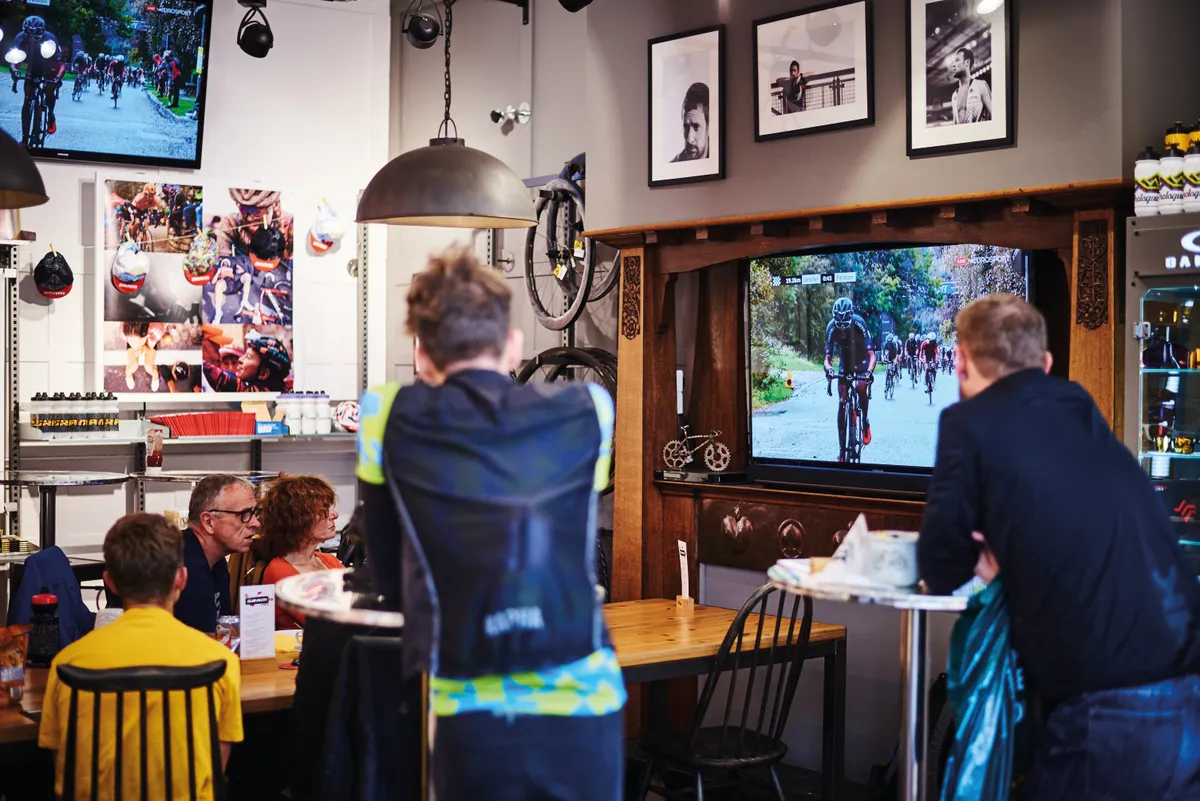
Cafes, bars and pubs are still closed, so a mid-ride cake stop isn’t an option unless your favourite pitstop has a takeaway service. And you can’t meet socially indoors or in a private garden yet, so a post-ride cuppa is a no-no.
You’re not allowed to travel outside your local area, so if you do want to ride you should do so from home or make only a short journey. You can’t stay overnight, can’t stay with other people and can’t stay in a second home if you have one.
Finally, you must not travel if you have any coronavirus symptoms, are self-isolating, in a household or support bubble with someone who has symptoms, or have been told to self-isolate by NHS Test and Trace.
What constitutes my local area?
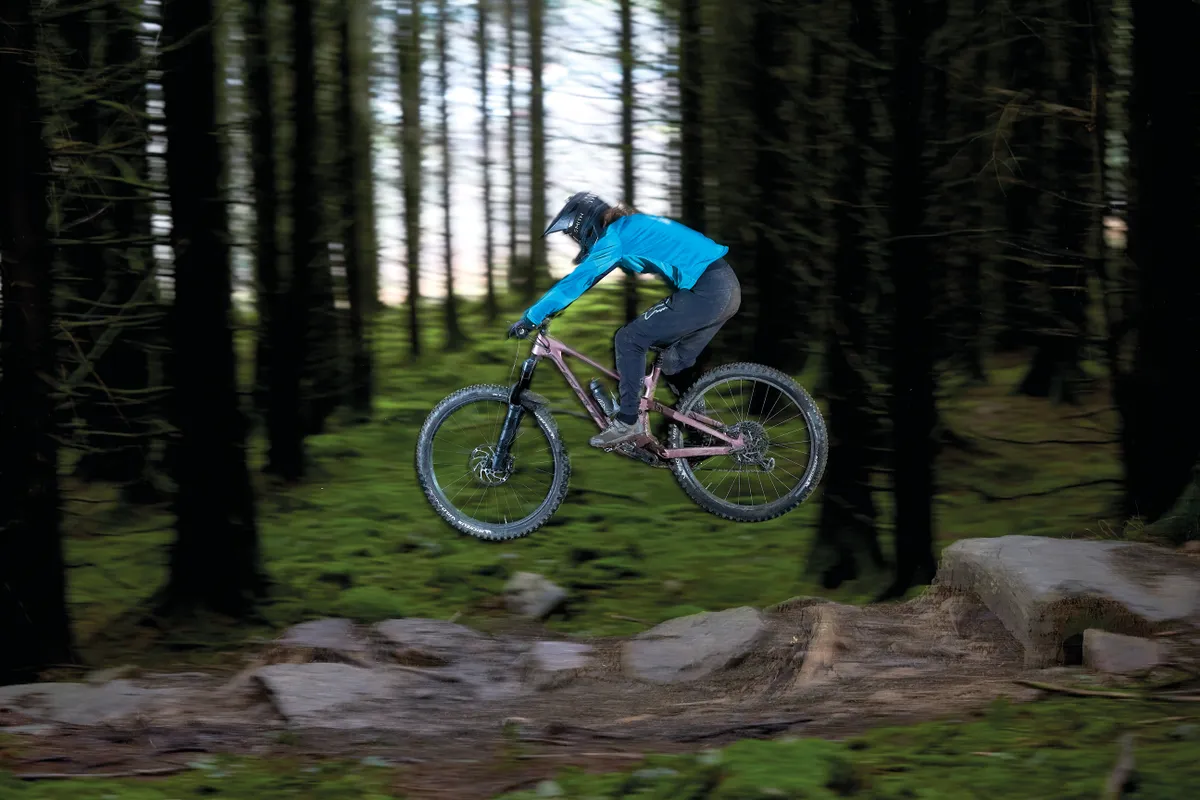
That’s ambiguous in the regulations for England, with no definition of what constitutes “local”. In general, we’d recommend riding from home.
Many bike rides for exercise will take you some distance from home. Health secretary Matt Hancock has said that that’s allowed, stating in a daily briefing: “if you went for a long walk and ended up seven miles from home, that is okay, but you should stay local. It is okay to go for a long walk or a cycle ride or to exercise but stay local.”
The rules are tighter in the other UK countries. Scotland says you can’t travel more than five miles outside your local authority area for exercise and your ride must start and finish in the same place, while for Northern Ireland you can only travel 10 miles from home.
Meanwhile, Welsh regs say that you must start and finish your ride from your home.
Can I cycle to work during the coronavirus pandemic?
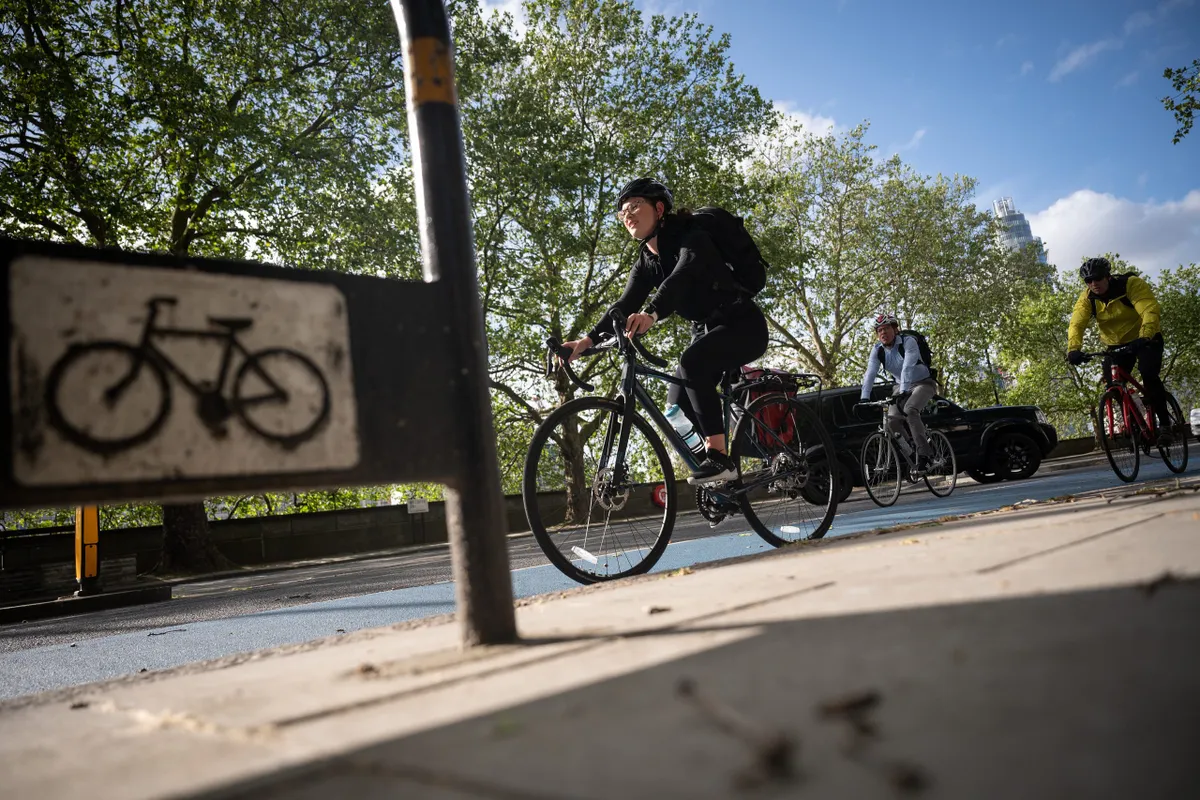
Cycling has been actively encouraged as a form of transport for cycling to work, with the UK government advising against the use of public transport where possible. Cycling is also still considered an appropriate form of transport for shopping for essential food or medicines.
The government is encouraging those who can to work from home during the pandemic, to increase social distancing and reduce the opportunities for the virus to spread.
But, if it’s essential that you need to get into work, cycling is an ideal way to avoid the close quarters, touching of surfaces and mixing with other people that’s inevitable in mass transit systems.
Are bike shops still open?
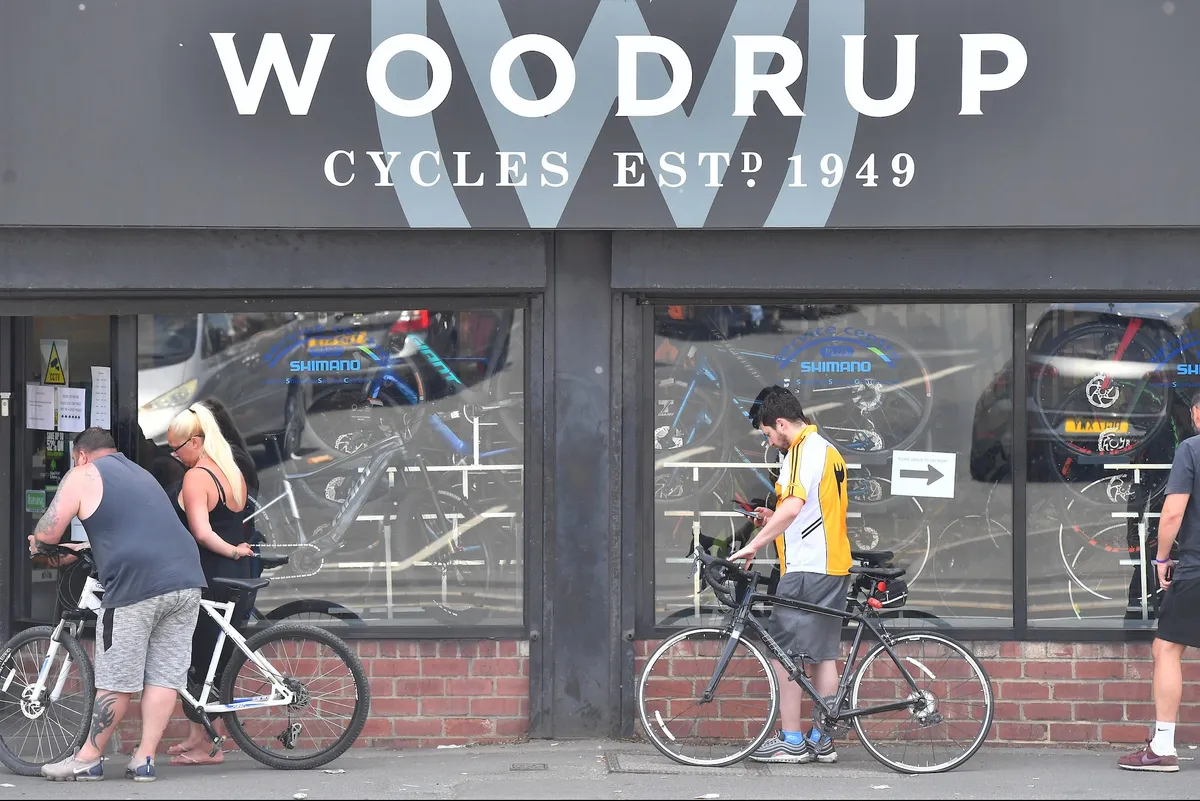
Bike shops are among the businesses exempt from the current UK shutdowns and are experiencing a boom in sales, with many people turning to cycling for exercise or to commute to work.
We’d recommend calling your local bike shop in advance of visiting to ensure the business remains open and to check what social distancing steps they are taking to protect staff and customers.
Am I okay to cycle indoors?
If you’re feeling healthy and want to keep active without going outdoors, indoor cycling is a good option.
Indoor training has a range of benefits, including the fact you don’t have to endure the weather and will reduce post-ride bike cleaning.
Turning to Zwift or other indoor training apps, such as Rouvy, RGT Cycling and TrainerRoad, will be the obvious options for many to keep indoor cycling interesting.
Indoor training on BikeRadar
- Best turbo trainer: top-rated smart trainers
- Rouvy: everything you need to know
- Beginner’s guide to indoor cycling: all you need to get started
- The best workouts and training plans on Zwift
- Best Zwift setups for every rider – from budget to ultimate
- Indoor cycling benefits: 8 reasons why you should train indoors
- Cheap turbo trainers and accessories | The latest deals
Finally, keep safe
We all love to be out on our bikes, but some time without a ride or just riding indoors on the trainer is a sacrifice worth making to help get the pandemic under control.
If you do choose to ride outdoors, please ride safely.
Do you have any further questions about cycling and coronavirus? Leave your thoughts in the comments and we’ll do our best to answer them.
This guide was last updated on 10 March 2021 to reflect the latest advice and guidance from the UK government and each of the UK's devolved administrations.

